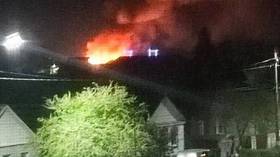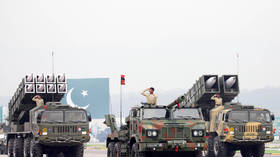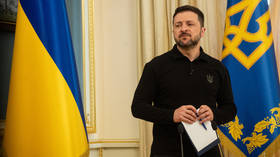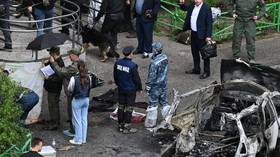CIA’s anti-leaking tool leaked as ‘whistleblowers watch the watchers’
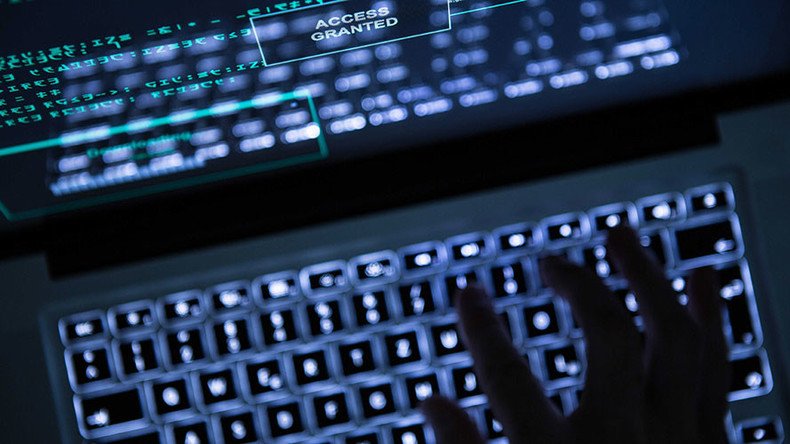
Can systems like the CIA’s Scribbles, which has been revealed by WikiLeaks, deter whistleblowers? Do these leaks mean the US agency is going to invest more money in its security? How effectively is the agency functioning?
Former MI5 intelligence officer Annie Machon and retired US Army Colonel Ann Wright, who is also a retired US State Department official, shared their views on these and other questions with RT.
On Friday, WikiLeaks released a series of documentations on a US Central Intelligence Agency (CIA) project known as ‘Scribbles,’ which was allegedly created to allow ‘web beacon’ tags to be embedded “into documents that are likely to be copied.”
WikiLeaks began publishing a huge cache of secret documents on the CIA named ‘Vault 7’ in March.
RT: Do systems like this deter whistleblowers? And, is it true that these watermarking systems are limited to Microsoft Office documents?
Annie Machon: I’d be certainly alarmed if the CIA was only reliant on Microsoft in this day and age, but anyway. No, it is not a surprise. In fact, ironically, there was a document drawn up by the American intelligence agencies written in 2008 about how to tackle what was perceived to be an insider threat, as they called it, potential future whistleblowers. This was ironically leaked to WikiLeaks in 2010, so it came into a wider world. The knowledge has been there for many, many years to those both from the inside and those who watch from the outside that, actually, they do take whistleblowing and leaking very seriously. They are trying to take steps to try and stop it. The interesting thing about these CIA documents at the moment is that they date from between 2013 and 2016. So, whoever leaked this cache of documents that is appearing in WikiLeaks ‘Vault 7’ was probably well aware that these documents were indeed watermarked digitally, and they managed to evade that system anyway, because they successfully leaked these documents to WikiLeaks. So, who is watching watchers? Well, the whistleblowers are.
RT: Apparently, the CIA’s system didn’t come cheap. Is this a sign that a lot more money is going to be going into trying to plug those holes in future to stop whistleblowers, to plug those leaks?
AM: Probably, yes. The CIA, I think, has a budget of over $600 million a year, anyway, to develop its electronic snooping capabilities, which, actually, I thought, that’s what the NSA was supposed to be doing, not the CIA. They are supposed to be running human operatives around the world to gather preemptive intelligence about terrorist attacks, not trying to stifle whistleblowing. Yes, they seem to be getting more and more money to do this, and it seems to be a war on whistleblowers.
US govt using terrorism as rationale to undercut citizens’ privacy
Due to the leaks, US citizens are finding out that their government has been doing things that they try to rationalize by laws after the fact using the words “terrorism” and “state security” as justification, said retired United States Army Colonel Ann Wright.
RT: A CIA program to trace leaks has been leaked. What does this say about the effectiveness of the program?
Ann Wright: It sounds like the ability to keep classified information, particularly that information that really does undercut, in my opinion, the true national security of the US, which was really based on our constitution, that we do have a right to privacy, that the government should not be looking into every aspect of our daily life. We’re now finding out because of leaks that our own government has been doing things that they try to rationalize by laws after the fact. What they are doing is undercutting the privacy of people and using the name of ‘terrorism’ and ‘state security’ as the rationale. But it is not a good enough rationale for me, because looks like they are sneaking and peeking into everybody’s private life – not necessarily having anything to do with national security.
RT: WikiLeaks is continuing to leak details about the CIA’s spying tools. What does this say about how the agency is functioning at the moment?
AW: It shows that the agency itself is developing programs to have more invasions of our privacy, and it shows that some workers in the Federal government totally disagree with it. They, probably behind the scenes, have argued vigorously against these things on the basis of the constitutionality of them, the legality of them. They are being overruled by their political bosses, who go ahead and say: “We’re going to do this to the American public, or the public of the world, no matter what.” And it doesn’t have anything to do with national security.
RT: President Donald Trump and other senior US officials have repeatedly said that they are at war with whistleblowers. How much progress are they making?
AW: Certainly, the Obama administration was at war with whistleblowers, because President Obama and his administration prosecuted more people for being whistleblowers, for leaking information, or telling about programs that the public really needed to know about. These people were willing to take the consequences of what happened to them because they felt it was in the public good that the American people knew what its government was doing to us. I think the Trump administration is going to have the same challenge that the American people really want to know. We certainly are concerned about our national security, but what we’re seeing is that the US government has been using that canard to eavesdrop and spy on everyone.
The statements, views and opinions expressed in this column are solely those of the author and do not necessarily represent those of RT.





